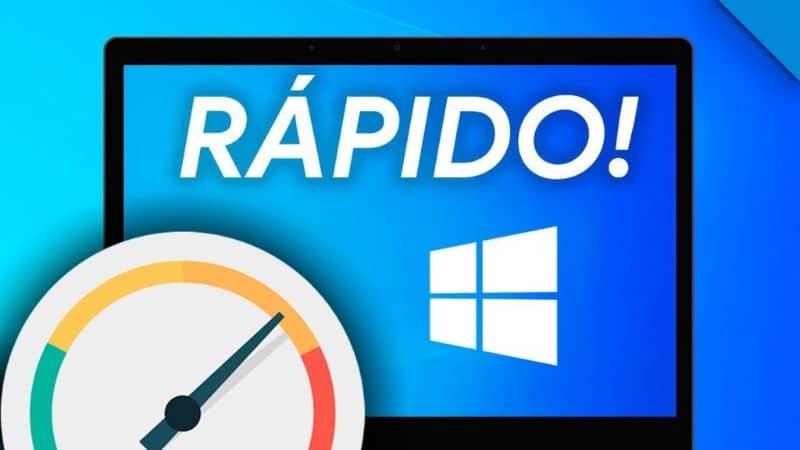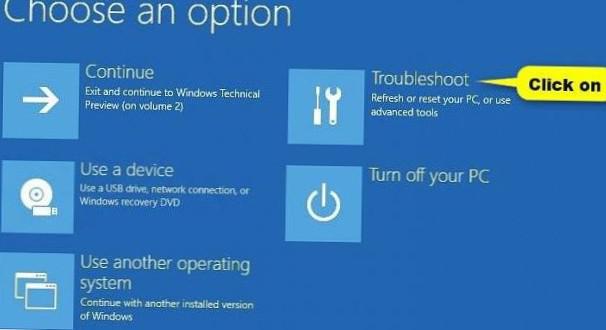As one of the most popular computer operating systems in the world, WindowsTM has an impressive history of above-average performance and cutting-edge built-in technology and software that keeps users loyal to the brand. However, with all the positives this operating system offers, there are always a few downsides .
Windows XP became very popular with businesses, but it was also plagued by security vulnerabilities and software bugs. Windows Vista gave the operating system a complete visual makeover, but lacked efficient driver support and data protection.
Fast forward to the release of Windows 10 in 2015 and Windows users agree that the tenth installment has proven to be the best. Why is your computer still slowing down?
Overdressed
In our digital age, where everything is made accessible on our computers, we find ourselves downloading, uploading, streaming and gaming more than ever before.
With all the high-speed multitasking you've come to expect from your computer, there's a chance it can get bogged down, causing more frustration than productivity. We'll walk you through why your operating system has slowed down and our top tips on how to get Windows working 10 can accelerate.
Why is my Windows 10 so slow?
There are a number of reasons why your computer
operating system
has slowed down over time, but the signs always point back to one reason: to use them!
Between clicking through all your favorite programs, downloading files, and hard computing on the hard drive, it's easy to neglect how much you push your operating system through.
If you have determined that your Windows 10
Computer works slower than usual
, these reasons might explain why.
1. Your hard drive is too full
When you download and install photos, videos, programs, and other files on your computer, everything is stored on your PC's hard drive. If your
hard drive capacity
approaches 90%, your computer may be 50% slower than its original speed.
Check the capacity of your hard drive by following these three steps:
1.
Open "File Explorer". You can access it by pressing the Windows key and E . click
2.
In the left pane, click This PC.
3.
Available free disk space is shown on Windows (C:)
2. Malware
Contrary to popular belief, not all viruses are the same. Malware affects your computer in a very different way than a traditional virus. Malware, or malicious software, is designed to damage a computer's operating system.
Typically, malware infects your computer by corrupting general processes, effectively slowing down functions that used to run at breakneck speed.
3. You are out of memory
Before figuring out how to speed up Windows, you need to assess the remaining values of your computer
RAM storage capacity
.
Your computer only offers so much
RAM
So, if you have high-performance photo editing programs or complex HD games installed on your entry-level or mid-range PC, you could be over-working your computer into a state of constant lag.
To check which programs are hogging you
computer memory
, follow these steps:
1.
Access your task manager by pressing CTRL+ALT+DEL at the same time.
2.
Look for the "Processes" tab.
3.
The Processes tab lets you see which programs are taking up the highest percentage of your CPU, memory, disk, and more.
4. You're running too many programs or opening too many browser tabs
In the digital age, it's all about multitasking. In an effort to accomplish as much as possible in the least amount of time and with the fewest clicks, we tend to clutter up our PCs with dozens of tabs while Spotify, Netflix, Facebook Messenger, and Norton Antivirus running in the background.
Your computer can only handle so much at once. With so many pages open, chances are you're overloading your RAM. Be wary of auto-refresh sites like live blogs or video playlist sites that result in sluggish processing being able to lead.
5. Your Windows startup is out of control
Newly downloaded programs come at a high cost if they clutter up your Windows Start menu. Because everyone wants attention, new installs usually try to boot every time you turn on your PC.
If you haven't manually disabled the permissions panel that disables the program's self-start, these sneaky programs can add minutes to your overall startup time.
Different reasons
If you have not found your computer problem with one of these top five reasons,
Your PC slowdown could be due to one of the following:
Your browser has too many add-ons and extensions.
Your antivirus is blocking your PC with scans at an inconvenient time.
Your operating system is too advanced for your PC hardware.
Your computer's operating system is outdated or your
Computer overheats
.
How can I improve Windows 10 performance?
Despite the rapid development that Windows 10 has brought to the market, the operating system is still one of the most prone to random slowdowns.
Because Windows 10 comes with a number of pre-installed programs and system resources, your PC is already overloaded with a number of reasons why its performance may be less efficient than it could be. What affects your computer's operating system the most?
Performance fix #1: Remove unnecessary programs
The problem:
Apps and programs that you once downloaded and no longer need can affect computing speed.
They continue to take up large amounts of RAM and storage on your
hard drive of the PC
.The quickest solution to these lag-causing programs is to get rid of them completely.
The repair:
1.
Select "Programs" in your Control Panel
2.
Then click on “Uninstall a program”
3.
This tab allows you to go through and view every program installed on your PC
4.

Getting rid of old games, useless browser toolbars, and redundant virus scanners can speed up Windows 10 performance in a few simple steps
Performance fix #2: Limit launcher processes
The problem:
Between the pre-installed applications and the apps you download yourself, the programs on your PC all fight for attention as soon as you turn on your computer.
If you want to load too many programs at the same time, your PC will suffer from speed.
The repair:
1.
Access your task manager by right-clicking the Windows button on the bottom left of your PC
2.
Go to the "Startup" tab in Task Manager
3.
From there you can see what programs are loaded at power-up, along with their impact on startup
4.
You can
disable all programs
by selecting the program and clicking "Disable" at the bottom right of the Task Manager window
Performance fix #3: Scan for viruses
The problem:
Viruses, spyware, adware, and malware are all worrying security breaches that can affect your Windows 10 performance.
From crashing your computer to redirecting browser pages to phishing sites, these infectious digital agents spread like wildfire once they invade your PC.
The repair:
1.
If your computer shows symptoms of a virus infection,
download a virus scanner
which can detect any suspicious activity and oust all shady files cluttering your hard drive
2.
There are a number of reliable and trustworthy anti-malware cybersecurity programs that will look for, detect, warn and remove anything that might affect your PC's performance and overall security
Performance fix #4: Clean up your hard drive
The problem:
If your computer
too little disk space
, it is unable to load programs or files at the speed it was used to.
A slowdown can be a sign that your PC is too full of unnecessary data. Installers, temporary files, and other junk files in various folders on your PC take up more space than you think.
The repair:
1.
Running Windows built-in Disk Cleanup is a win-win situation for your PC
2.
This system cleaning will not only improve the overall performance, but also
Free up space on your hard drive
3.
In the Start menu search bar, type "
Disk Cleanup
”
4.
The pre-installed app should appear as the first suggestion
5.
Disk Cleanup will then display a list of items that can be deleted to free up disk space
6.
You have the option to view the files and delete them all at once, or select each one individually
Performance Fix #5: Update your PC
The problem:
Maybe you have a . Bought
Windows 10 computer
that wasn't technologically advanced enough to handle the complex apps you use or the many raw photo files you stored on your PC.You've found that your computer is struggling to keep up with your complicated computing habits .
The repair:
1.
Trying to figure out how to speed up Windows with a revamped computer can prove extremely difficult without completely upgrading your PC
2.
Depending on the make and model of your PC, you may be able to
Upgrade RAM, graphics card, processor and storage
3.
These upgrades may be slightly cheaper than a brand new computer and give you the flexibility to modify as needed
Performance Fix #6: Restart your PC
The problem:
Since many of us depend on our PCs to run smooth and fast from the moment we lift the laptop screen, we tend to leave our computers in sleep mode rather than turning it off completely.
Your computer can go for weeks without ever getting a real reset. It can also mean that your PC wasn't able to perform critical software updates when needed.
The repair:
1.
Restarting your computer refreshes your computer's RAM, clears the cache, and revives programs that may have been affecting overall performance
2.
A restart eliminates excess background processes and gives your PC more breathing room to increase speed
Final Notes
Maintaining a healthy computer takes a lot of work that Windows 10 manufacturers don't necessarily tell you about.
These helpful tips will get you closer to a fast PC in no time.
About the author
Tulie Finley-Moise is a Contributing Writer for HP® Tech Takes.Tulie is a digital content creator based in San Diego, California with a passion for the latest in tech and digital media news.
Popular HP Windows 10 Laptops




![How to Factory Reset an HP Laptop [Step by Step] How to Factory Reset an HP Laptop [Step by Step]](https://website-google-hk.oss-cn-hongkong.aliyuncs.com/article-website/bing/2021/7/27/fc4dd80bc03f8cbff86a474def1853ba.jpg?x-oss-process=image/auto-orient,1/quality,q_70/format,jpeg)
